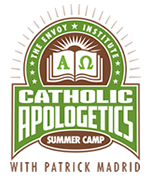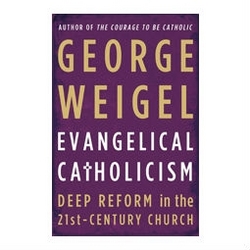Benedict’s abdication has opened the door for lots of interesting thinking these days. Some are taking the opportunity to complain about how bad they think the Church is, some taking the time to pause, evaluate, and to pray for the Pilgrim People of God. The Catholic Church is the Church of Christ, warts and all, it is beautiful, but it can be ugly at times due to the immature Christian faith of some people. Paul Elie’s article in the Times causes to me think many things; I neither disagree with him completely, nor do I agree. He raises interesting things to consider but there are parts of the article that annoy me. But that’s not to be discussed here. But I have to ask: To whom do we belong, Jesus Christ or an ideology? Is the Church leading you to salvation in Christ? Do we assess the needs, pray and work for change where needed and where possible with prudence? Or, do we whine and walk away like teenagers? How mature is our Christian following?
The Provost of the Brooklyn Oratory, The Very Reverend Father Dennis Corrado, CO, writes in response to Elie’s article in the Times. The Oratorians are good shepherds to their people.
I read Paul Elie’s NY Times piece “Give up your Pew for Lent” in Friday’s Op. Ed. page early this morning. To say it is thought provoking is an understatement .
I am hopeful most people reading his words can appreciate how we priests serving this wounded Church feel while reading it.
I am grateful that the Brooklyn Oratory [Church of Saint Boniface] is described so positively.
This weekend, I will begin to preach a parish retreat in what Fr. Anthony of the Brooklyn Oratory tells me is one of the largest parishes in the Archdiocese of New York.
I’ll preach at 5 Masses and then have sessions each day for three days. The theme is forgiveness…forgiving each other and forgiving ourselves…asking God to forgive us for the stupid, sinful things we do.. as the path to wellness and joy.
During that time I will quote Carlo Carretto’s now famous reflection which begins :How much I must criticize you, my Church.
My favorite line being: Countless times I have felt like slamming the door of my soul in your face, (my Church) and yet each night I pray I might die in your sure, safe arms
Carretto’s list of anger and regret and pain about the Church members’ duplicity and hypocrisy ends with the conviction that those failures are all our failures and that we are one with them as we are one with the holiness we practice.
I will remind myself and my retreat attendees that our faith is in the Person of the Church who is Jesus Christ and not in the personnel who are not…pews and pulpit alike.
And I will once again remind myself and them that my experience of four decades of public ministry has taught me that nobody changes the Church from without… only from within.
Not a single one of my priest friends who have left the Church have helped change the institution they so wanted to be better and truthful and modern and humane.
Perhaps that is why we feel the Oratory makes a difference . And it is certainly why I can never separate myself from the Eucharistic Body of Christ as some kind of protest against our Church’s failures… no matter how often they occur.
Did Theresa of Avila or Francis of Assisi or Catherine of Siena or Philip Neri vacate the corrupted Church of their ages?
As a son of Vatican II I have never stopped preaching that the Church is the People of God,: flawed, foolish, sinful, brilliant, graced. holy and even saintly that is, all of us …. not just the Chanceries nor the Curias.
We do make a difference and I am reminded of Woody Allen’s remark that 80 percent of success is showing up.
I know wherever each of us will find ourselves this weekend, in whatever equally flawed and holy place as ours, we will still be one with each other, baptized as we are into the eternal Body of Christ.
And while I feel the painful reality of each of our diasporas, I pray any kind of suggested Lenten “abstinence” brings us back to our sede vacante.
As they say in Rome: con affetto,
F. Dennis, c.o.
Provost
The Brooklyn Oratory




